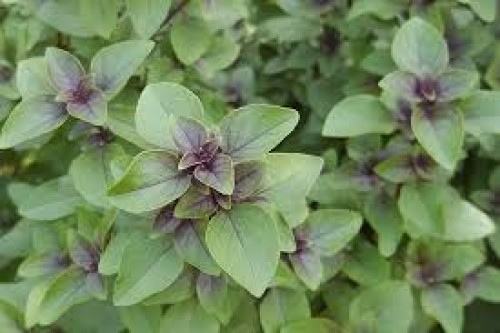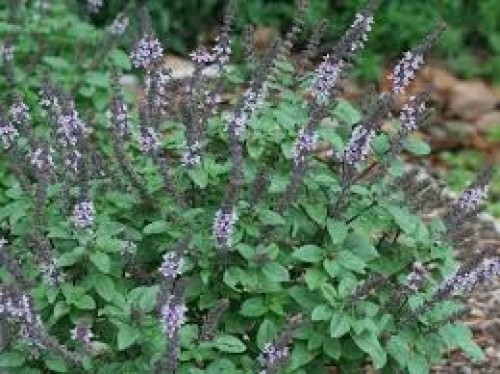off
-
Sold
-

-

out
Kapoor Tulsi Plant: Nature, Care & Advantages
Kapoor Tulsi (Botanical name: Ocimum sanctum, also known as Holy Basil) is a variety of Tulsi, highly revered in Indian culture for its medicinal, aromatic, and spiritual significance. Kapoor Tulsi is known for its distinct fragrance and is often used in religious rituals, as well as for its numerous health benefits. This variety is renowned for its unique aroma, which is quite different from the more common varieties of Tulsi.
Nature of the Kapoor Tulsi Plant
Kapoor Tulsi is a small, bushy herb that grows up to 2-3 feet tall. It has light green leaves with a silvery hue, and its flowers are small and purple. The plant is aromatic, and its leaves have a pungent, spicy fragrance that is considered to have a calming effect. Kapoor Tulsi thrives in tropical and subtropical climates and can be grown in pots, garden beds, or containers. It is a perennial herb, meaning it grows year-round in the right conditions.
Care for the Kapoor Tulsi Plant
- Climate: Kapoor Tulsi thrives in warm, tropical, and subtropical climates. It needs temperatures between 25°C to 35°C (77°F to 95°F). The plant should be protected from frost as it is sensitive to cold.
- Soil: It prefers well-draining, fertile, and slightly acidic to neutral soil. The pH level should be between 6.0 and 7.5. It grows well in loamy or sandy soil.
- Watering: Kapoor Tulsi requires moderate watering. Ensure the soil is kept slightly moist but avoid overwatering, as it can lead to root rot. Water the plant when the top layer of the soil feels dry.
- Sunlight: Kapoor Tulsi needs full sunlight to thrive. It should receive at least 6 hours of direct sunlight every day. In indoor settings, ensure it is placed near a bright window.
- Fertilization: Regular feeding with organic compost or liquid fertilizers will help boost growth. Fertilize once every 4-6 weeks during the growing season for healthy development.
- Pruning: Pruning is essential to maintain the plant’s shape and encourage bushy growth. Remove any dead or damaged leaves and pinch back the growing tips to promote branching.
- Propagation: Kapoor Tulsi can be propagated by seeds or stem cuttings. Stem cuttings should be placed in water or soil until they root and establish new plants.
Advantages of Kapoor Tulsi
- Medicinal Properties: Kapoor Tulsi is highly valued for its medicinal qualities. It is known for its ability to fight infections, reduce inflammation, and boost immunity. It is often used in Ayurvedic medicine for treating cold, cough, and respiratory problems.
- Stress Reliever: The plant is considered adaptogenic, which means it helps the body manage stress. Its soothing aroma and natural compounds help calm the nervous system and reduce anxiety.
- Improves Respiratory Health: Kapoor Tulsi has been used to treat respiratory issues such as asthma, bronchitis, and common cold. It acts as a natural expectorant and helps in clearing the airways.
- Detoxification: The plant is known to have detoxifying effects on the body. It aids in cleansing the liver, improving digestion, and eliminating harmful toxins.
- Antioxidant Properties: Kapoor Tulsi contains high levels of antioxidants, which help protect the body from oxidative damage and support overall health.
- Boosts Skin Health: The leaves of Kapoor Tulsi are used in many skincare products due to their antibacterial and anti-inflammatory properties. It helps in treating acne, skin irritation, and blemishes.
- Religious Significance: In India, Kapoor Tulsi is often grown in homes and temples. It is believed to have spiritual benefits, purifying the environment and creating a positive atmosphere.
Conclusion
Kapoor Tulsi is an incredibly versatile and beneficial plant, known for its aromatic qualities, medicinal properties, and religious significance. Growing this plant not only enhances the beauty of your garden but also provides a range of health benefits. With proper care, Kapoor Tulsi can thrive and provide you with fresh, fragrant leaves that can be used for tea, in cooking, or as a natural remedy for various ailments.